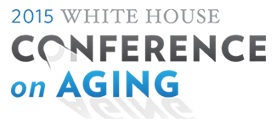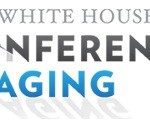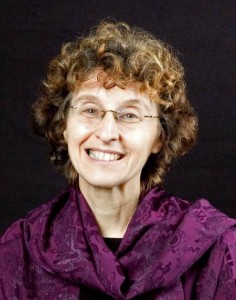Category: For All
Posted by Dr. El - April 18, 2020 - For All


I’m Worried About the Emotional Impact on the Staff
Mr. Davis used to sit in the lobby and greet staff members when they walked in the door of the nursing care center. His wife had friendly chats with other residents when she came to visit; his children brought plates of homemade cookies to the nursing station during the holidays. Covid-19 took him, them and every other family from nursing homes during this pandemic.
His bed is now occupied by Mr. Ward, who was transferred from the hospital two days ago with a coronavirus diagnosis. He hasn’t seen his relatives in the three weeks since they brought him to the crowded emergency room and his cell phone disappeared somewhere along the way. Lonely and in distress, he calls for help from overwhelmed nurses and aides many times each shift.
The care team swiftly referred Mr. Ward to me for psychology services. I’m able to sit down with him, ease his isolation and begin to process his traumatic experiences. I put my mobile phone on speaker so that he can talk with his children. His requests for nursing assistance have decreased.
For over two decades, I’ve tended to the emotional needs of residents, families and staff as a psychologist in nursing homes in the New York Metropolitan area. The mental health consequences of this pandemic on those who live and have loved ones in nursing facilities are profound. Tragic tales of family members unable to visit dying relatives are increasing, and, when the homes open up again to visitors, we will undoubtedly learn of many more heartbreaking experiences.
No less deserving of attention are the emotional pressures on the front-line workers caring for fragile and aging residents.
For the entire article, visit:
Posted by Dr. El - October 30, 2014 - For All, McKnight's Long-Term Care News

Here’s my latest article on McKnight’s Long-Term Care News:

If you, like me, completely missed the 2005 White House Conference on Aging (or if you weren’t in the field at the time), you may be wondering what the WHCOA is, what it does, and how one can get involved. Below, I share the answers to my own questions under the theory that I can’t possibly be the only one who doesn’t know enough about the conference.
What it is
The White House Conference on Aging is a once-a-decade national conversation about the needs of our aging population. The goal, according to the WHCOA website, is “to identify and advance actions to improve the quality of life of older Americans.” The first WHCOA was held in 1961, with subsequent conferences in 1971, 1981, 1995, and 2005. As indicated on the conference’s website, the 2015 conference takes place during a year that marks the 50th anniversary of Medicare, Medicaid and the Older Americans Act, as well as the 80th anniversary of Social Security.
The 2015 WHCOA agenda
Next year’s conference will focus on four main areas:
• Retirement security
• Long-term services and supports that allow elders to remain in the community
• Healthy aging
• Preventing financial exploitation, abuse and neglect of elders (elder justice)
What it does
For a positive view of the conference, Anne Montgomery’s article for the National Academy of Social Insurance points out concrete actions taken as a result of previous conferences.
According to Montgomery, the 1961 conference led to the development of 50 State Units on Aging as part of the Older Americans Act; the 1971 WHCOA resulted in the creation of the Supplemental Social Insurance program and establishing the National Institute on Aging within the National Institutes of Health; the 1995 WHCOA lead to the National Family Caregiver Support Program; and the 2005 WHCOA “provided momentum for reauthorizing the Older Americans Act in 2006, which strengthened the role of Aging Disability Resource Centers.”
Delegates to past conferences commented on her article, stating that the WHCOAs have been crucial in identifying problems and their solutions.
No stranger to controversy
For the entire article, visit:

Posted by Dr. El - December 18, 2013 - For All

Deborah Shouse, author of Love in the Land of Dementia: Finding Hope in the Caregiver’s Journey, recently posted suggestions from several experts (including me) on creating successful holidays when families are affected by Alzheimer’s.

“There’s a story behind these butterscotch brownies,” I told our Thanksgiving guests, as my brother Dan served dessert. “Mom created the recipe when Dan was six and became allergic to chocolate.”
There was a collective gasp as people imagined the horror of being allergic to chocolate. Then there were satisfying sighs as they tasted the melting sweetness of the brownies; Dan had re-created the recipe when my mother, disabled by Alzheimer’s, could no longer bake. Fortunately, Mom enjoyed sweets all her life and we always shared the story of these treats with her, reminding her how much we loved and appreciated her.
These brownies were one way my brother and I honored our mother during the holiday season.
I recently reached out to several exceptional people for advice: how do we take care of ourselves and our loved ones who have Alzheimer’s during the holidays?
Here are their words of wisdom:
For the words of wisdom, visit Deborah Shouse Writes at:







